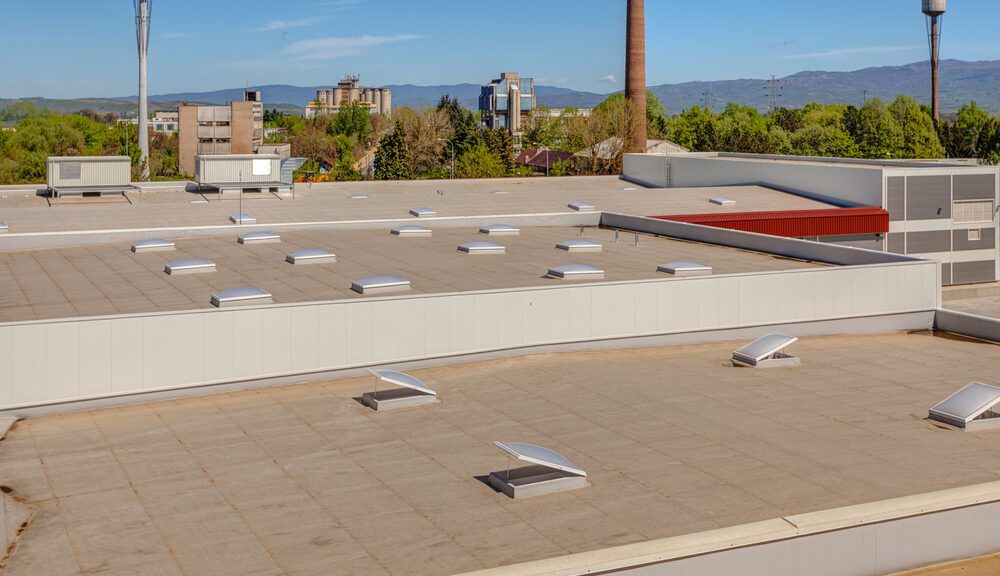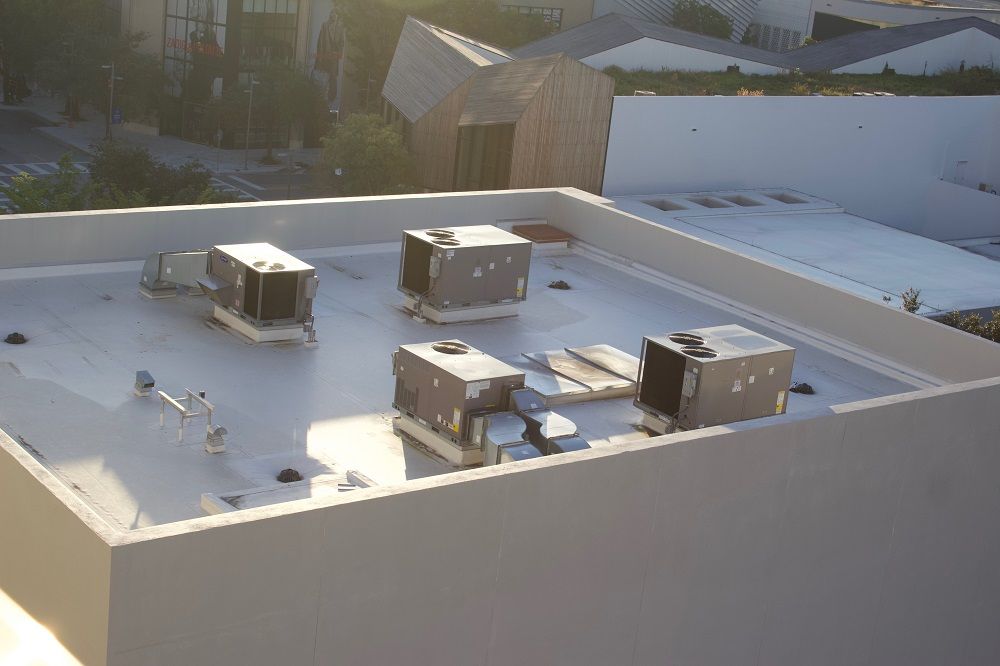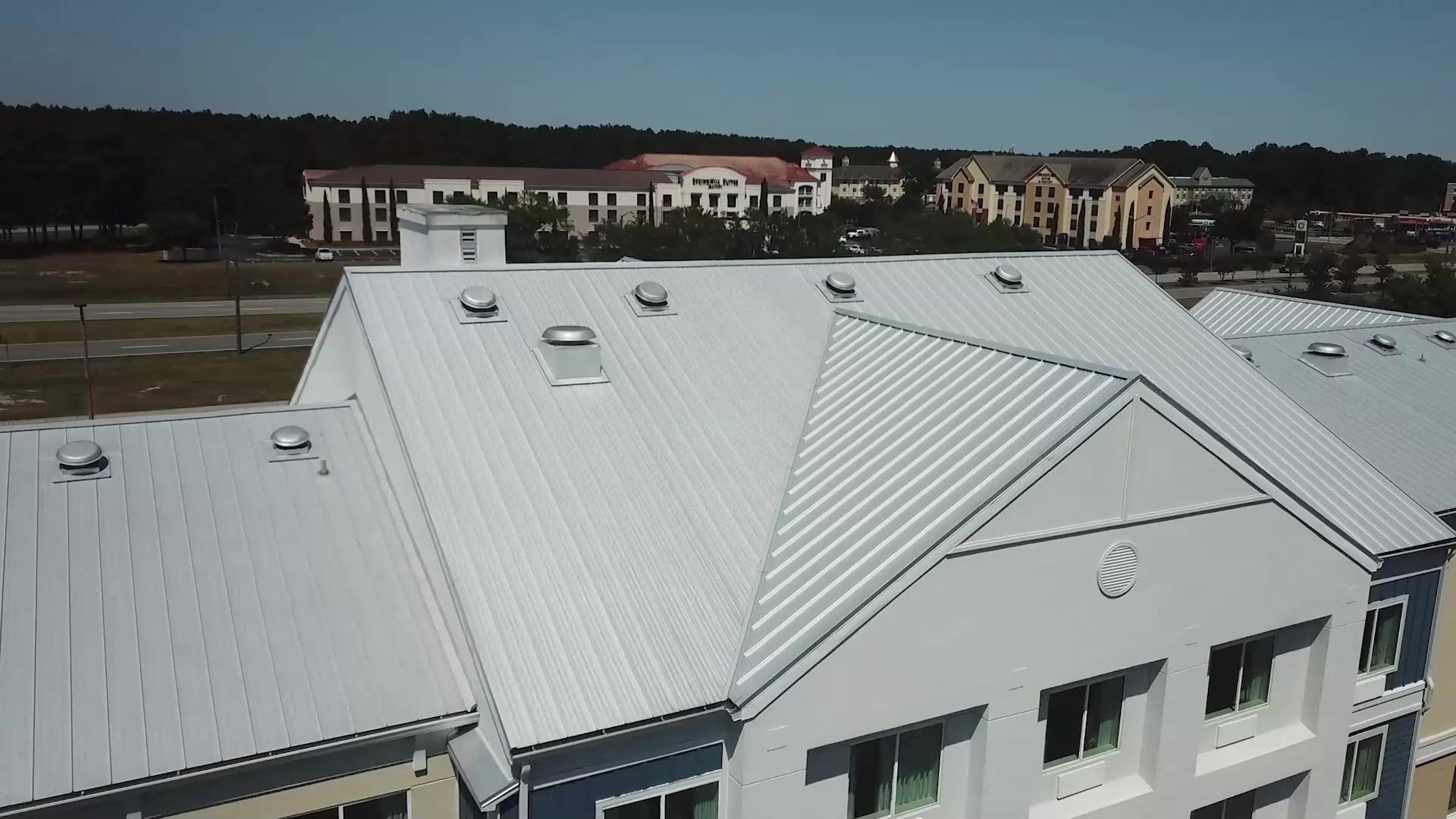Considerations Before Roof Replacement Commercial Roofing Systems Sydney
When contemplating the best materials for commercial roof replacement tasks, numerous elements come into play. The choice not solely impacts sturdiness and maintenance but additionally efficiency and overall costs. Selecting the right roofing material is essential to ensure long-term efficiency, compliance with building codes, and compatibility with the building’s structure.
TPO (Thermoplastic Olefin) emerges as a preferred alternative for commercial roofs. This single-ply roofing membrane is understood for its energy effectivity due to its reflective nature, which helps scale back cooling costs. TPO is lightweight, making it comparatively simple to put in, and may typically be applied over existing roofing techniques. It can additionally be immune to UV rays, chemical exposure, and punctures, supporting a longer lifespan.
EPDM (Ethylene Propylene Diene Monomer) is one other vital choice renowned for its sturdiness. This rubber roofing material has been a staple within the commercial roofing business for decades. EPDM is extremely proof against extreme weather conditions, ultraviolet light, and temperature fluctuations, making it a sturdy selection for various climates. With proper upkeep, an EPDM roof can last over 30 years, showcasing its long-term cost-effectiveness.
Metal Roofing Contractors Sydney Large-Scale Commercial Roof Replacement Sydney
PVC (Polyvinyl Chloride) roofing methods present an interesting selection for a lot of commercial initiatives. This single-ply membrane is understood for its excellent resistance to fireplace, chemicals, and moisture. PVC roofs may be mechanically hooked up or fully adhered, offering flexibility in installation. Their energy-efficient nature contributes to decrease energy bills and their capability to withstand harsh environmental situations enhances their appeal.
Metal roofing supplies another viable possibility, notably in industries prioritizing sustainability. Metal roofs are sometimes produced from aluminum, metal, or copper, offering great energy and longevity. Their reflective surface helps hold buildings cooler, leading to decreased energy costs. Additionally, metallic roofs may be recycled at the finish of their lifecycle, aligning with eco-friendly practices that many businesses at the second are adopting.
Built-Up Roofing (BUR) continues to be a dependable choice, significantly for flat roofs. Composed of multiple layers of asphalt and felt, this sort of roofing provides distinctive waterproofing benefits. Its layered design not solely enhances sturdiness but also can present some insulation, allowing for improved energy efficiency. While BUR could require more maintenance over time, its longevity can justify the preliminary funding.
Spray polyurethane foam (SPF) is highly regarded for its insulation properties. This material expands on software, forming a steady barrier that eliminates seams and gaps. Its superior insulation can lead to vital energy financial savings over the roof's lifespan. SPF roofs are also lightweight, decreasing stress on the building construction. However, SPF may require a protective coating to reinforce sturdiness and UV resistance.
Commercial Roof Restorations Sydney Commercial Roof Lifecycle Sydney
Concrete roofs, whereas much less common, have gained attention for their robustness and hearth resistance. This choice is especially appropriate for commercial properties the place sturdiness is a precedence. Concrete roofs may be pre-cast or poured on-site and are extremely proof against heavy winds and particles. Their thermal mass capabilities assist regulate indoor temperatures, proving beneficial in areas with extreme weather variations.
Green roofs or living roofs are emerging as innovative solutions for commercial buildings. These roofs are covered with vegetation and soil, providing significant environmental benefits. They improve insulation, reduce urban warmth, and promote biodiversity. Although set up and maintenance costs can be higher, the potential savings on energy bills and stormwater management can make them an attractive option in the long term.
Choosing the proper roofing system additionally entails understanding the implications of native local weather. Region-specific elements like rainfall, snowfall, and exposure to the sun can determine which materials will carry out finest. For occasion, areas vulnerable to heavy rainfall might lean toward materials with excellent waterproofing qualities, while companies in hotter climates additional resources might prioritize reflective roofing options.
Industrial Roofing Sydney Services Sydney Commercial Roof Replacement Company

Financial considerations can closely affect the roofing material choice. The preliminary cost of materials usually doesn't symbolize the whole investment. Maintenance, energy effectivity, and longevity play essential roles in determining the overall worth of a roofing system. It's important for decision-makers to calculate the full lifecycle cost, including potential energy financial savings and repairs, to make an informed choice.
In conclusion, selecting the right materials for commercial roof replacement projects is a multifaceted decision that requires a radical understanding of assorted roofing systems. TPO, EPDM, PVC, metal, BUR, SPF, concrete, and green roofs each supply distinct advantages suited to different business needs. Evaluating the native local weather, building design, and long-term monetary implications is essential for an efficient decision. Ultimately, careful planning and consideration will lead to choosing a roofing answer that ensures sturdiness, effectivity, and total satisfaction.
- EPDM (Ethylene Propylene Diene Monomer) is highly durable, immune to UV rays, and efficient in environments with excessive temperatures, making it perfect for flat roofs.

- TPO (Thermoplastic Polyolefin) is thought for its energy effectivity as a end result of reflective properties, helping to decrease cooling prices while also being light-weight and straightforward to install.
Roofing Contractors Commercial Sydney Sydney Industrial Building Roof Replacement
- PVC (Polyvinyl Chloride) roofing methods are long-lasting and resistant to chemical compounds, making them suitable for buildings that will experience publicity to harsh substances.
- Custom Commercial Roof Replacement Sydney
- Modified Bitumen combines asphalt with other materials for enhanced flexibility and durability, making it a preferred choice for low-slope roofs that may face up to thermal enlargement.
- Metal roofing provides exceptional longevity and might endure extreme weather conditions; it is also recyclable, contributing to sustainability efforts in commercial building projects.
- Built-Up Roofing (BUR) consists of a quantity of layers for added power and insulation, typically offering a cost-effective resolution for larger flat roofs.
Commercial Flat Roof Repair Services Professional Commercial Roof Replacement Sydney
- Slate and tile options present aesthetic appeal and lengthy lifespan, although they've a better initial cost; their resilience makes them an acceptable selection for upscale commercial buildings.
- Green roofs, which incorporate vegetation, not solely enhance insulation and energy effectivity but in addition manage stormwater and enhance urban biodiversity.
- Spray Polyurethane Foam (SPF) creates a seamless, insulated roofing system that adheres to existing constructions, lowering labor prices and enhancing thermal performance.

- Elastomeric coatings can lengthen the lifespan of present roofs by offering a waterproof barrier and UV safety, making them a versatile selection for upkeep projects.
What are the commonest materials used for commercial roof replacement?undefinedThe most common materials embrace TPO (Thermoplastic Olefin), EPDM (Ethylene Propylene Diene Monomer), PVC (Polyvinyl Chloride), and steel. Each material offers distinctive advantages, making them suitable for several sorts of buildings and climates.
Residential Roofing Services Sydney Sydney Commercial Building Roof Upgrade
How do I choose the best roofing material for my commercial building?undefinedConsider components such as the building's structure, local local weather situations, cost, energy effectivity, and maintenance requirements. Consulting with a roofing professional also can present tailor-made recommendations based on your specific wants.
What is the lifespan of various commercial roofing materials?undefinedGenerally, TPO and PVC can final 20-30 years, EPDM round 15-25 years, and metal roofs can exceed 50 years with proper maintenance. It's essential to decide out materials that align along with your long-term plans for the building.
Are energy-efficient roofing choices obtainable for commercial buildings?undefinedYes, materials like TPO and PVC often come with reflective surfaces that reduce heat absorption, leading to lower energy bills. Additionally, green roofing methods featuring vegetation provide natural insulation and climate control benefits.
What are the maintenance requirements for different roofing materials?undefinedMaintenance varies significantly: EPDM might require periodic inspections and seam repairs, while metallic roofs typically need cleaning and rust prevention. Commercial Roof Replacement Specialists Sydney. TPO and PVC typically require less upkeep however should still be inspected often for harm.
Roof Installation Sydney Services Quality Commercial Roof Replacement Sydney
How does climate affect the choice of roofing material?undefinedIn regions with heavy rainfall, materials like EPDM or metallic could perform better because of their superior water resistance. In scorching climates, reflective materials like TPO may help reduce cooling costs.
What is the price difference between numerous commercial roofing materials?undefinedCost can range broadly, with TPO and EPDM Read Full Article typically being more affordable upfront in comparison with PVC and metallic. However, contemplating total lifespan and upkeep prices is essential for assessing long-term worth.
Are there guarantee choices available for commercial roofing materials?undefinedYes, most manufacturers offer warranties ranging from 10 to 30 years, depending on the material (Sydney Commercial Roof Replacement Packages). It’s advisable to read the terms fastidiously, as they may cowl materials and set up quality differently.

Can I set up a new roof over an current one?undefinedYes, in plenty of instances, a model new roof could be installed over the prevailing one, which can save on labor and disposal costs. However, it is important to ensure that the underlying construction can help the added weight and that there are no existing points requiring restore.